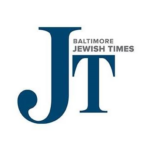Having completed their merger, Pearlstone and Hazon have a new name: Adamah.
CEO Jakir Manela announced the news in an email on March 2. The boards of Pearlstone, the Reisterstown-based retreat center and outdoor education site, and of Hazon, a New York-based Jewish environmental organization, first voted to merge 20 months ago.
Adamah’s mission is “to cultivate vibrant Jewish life in deep connection with the Earth, catalyzing culture change and systemic change through Jewish environmental education, immersive retreats and climate action,” according to a press release.
The merger, originally announced in July 2021, will allow the two organizations to pool their resources and maximize the impact and reach of their programming. Pearlstone’s Reisterstown campus will serve as the headquarters of Adamah. The campus will continue to host immersion and education programs and will also remain an agency of The Associated: Jewish Federation of Baltimore. Adamah will also have a campus at the Isabella Freedman Jewish Retreat Center in Connecticut. In addition, Adamah has a Community Impact Hub in Detroit, as well as plans to launch additional hubs in Southern California and elsewhere by the end of this year.
Hazon and Pearlstone have been the leading organizations in Jewish environmental education and immersive retreats and sustainability action initiatives for 20 years. The demand and need for that work has never been greater. And there’s an opportunity now to take the impact to the next level in response to a really dramatic increase in demand from local communities in Baltimore and communities across the country.
Jakir Manela, CEO, Adamah
As a result of the merger, the Pearlstone campus will have access to Hazon’s national funding. The Associated’s Centennial Campaign has raised over $14 million for the space, according to Manela, allowing the Reisterstown campus to build and improve facilities.
With increased national attention, Adamah will also be able to steward more local chapters of the Jewish Youth Climate Movement created by Hazon, which has grown to over 50 chapters nationwide.
Adamah is working to expand JYCM, led mostly by high schoolers, to college campuses.

Adamah will also be able to take advantage of Pearlstone’s blueprint of community-based programming and support to expand Baltimore’s Green Loan Fund, which has given about $800,000 to 20 Jewish organizations in the area for them to invest in solar energy and improved HVAC and lighting systems.
“The reason it makes sense is that these institutions are saving money on their utility bills, which then they repay the loan, but they’re also significantly lowering their carbon footprint,” Manela said of the Green Loan Fund.
The merger gives Adamah an opportunity to transform the program into a national climate loan fund, available to any of the 180 members of the Jewish Climate Leadership Coalition nationwide. Adamah convened this coalition of Jewish organizations to commit to action on climate change.
The merger comes at a pivotal moment in a worldwide and secular conversation about climate change, and Judaism is one way to guide this conversation, according to Josh Fidler, nominating chair of the national board and Pearlstone founding board chair.
“Twenty years of practice at both Hazon and at Pearlstone show how impactful our agenda is for both individuals and entities of all colors, shapes and sizes, and the urgency of the moment. Living Judaism, Jewish values, have a great deal to say about our place in the Earth’s cycle.”
Josh Fidler, nominating chair of the national board and Pearlstone founding board chair
The organization’s name, Adamah, speaks to this idea, as it connects the Hebrew words “adam” (man) with “adamah” (earth) to emphasize the connection between “people and planet,” according to Manela’s email.
When Pearlstone was founded in 2001, the Pearlstone family was interested in being able to “provide superior immersive experiences for a very broad cross section of Jewish community,” Fidler said. Though immersive experiences are Pearlstone’s bread and butter, the mission of the organization allows it to remain nimble and adapt to changing interests, now primarily led by youth.
Fidler is developing an idea for a Zoom chavurah, gathering grandchildren and their elders to exchange ideas and educate on climate change and other issues of the day across generations.
Pearlstone’s strengths and what makes its model appealing to nationwide organizations, Manela believes, is its ability to balance community values and interests with powerful backing from The Associated and other Jewish legacy organizations. Adamah’s ultimate goal is to emulate this blueprint and make it accessible and adaptable for Jewish organizations all over the country.
“We’re a software generator,” Fidler said. “We hope to provide programming that can be adopted, literally globally, based on the tried-and-true immersion experiences that have worked so well at Pearlstone and at Hazon.”


